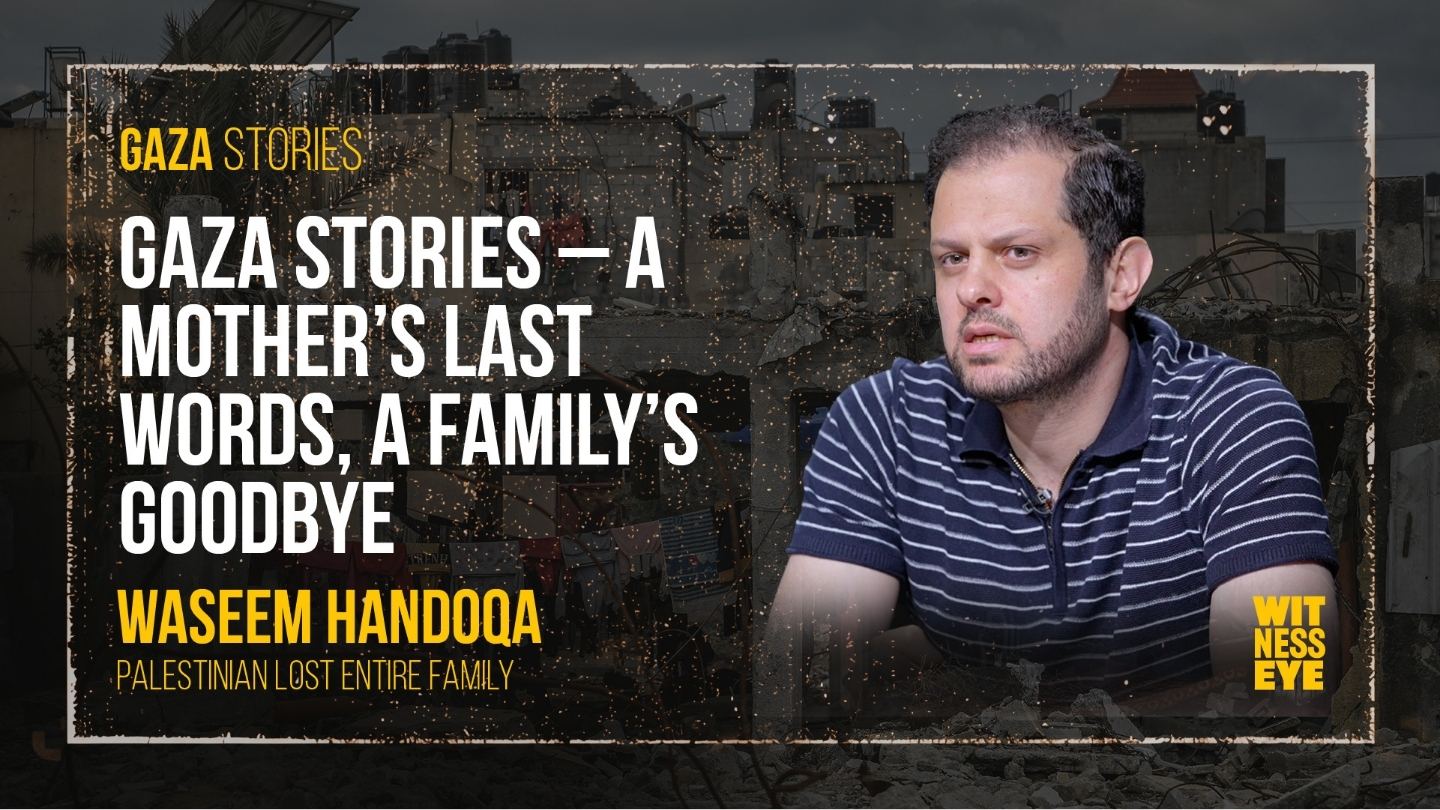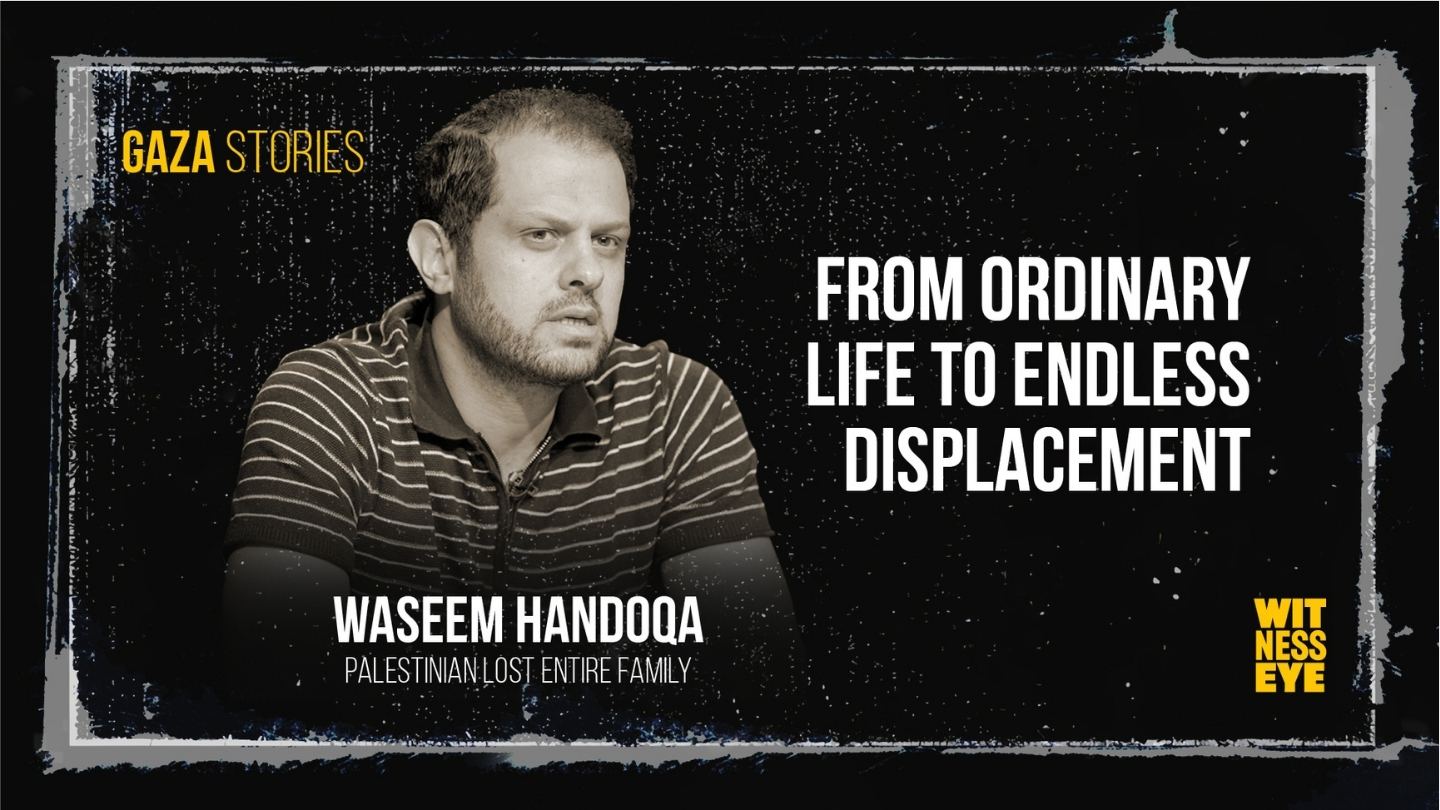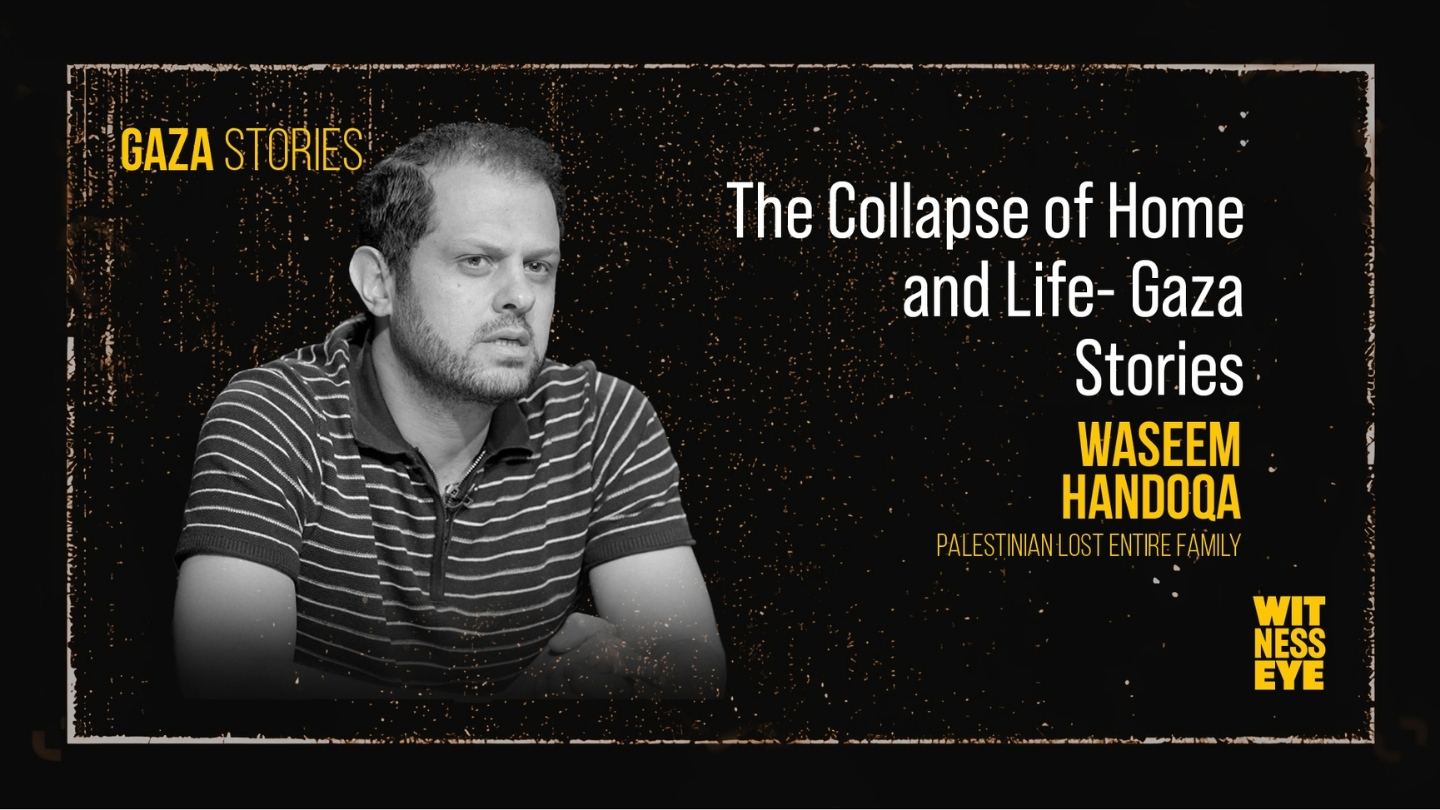
![]()
Gaza Stories are often told through numbers—casualty counts, destroyed homes, statistics that flash on screens and then fade with the next update. But numbers cannot carry grief. For Waseem, living in exile, every number has a name: his mother and three sisters. They were his mother and three sisters, women who had built their lives around family, study, and simple moments together. All of it ended under the rubble of one strike. What remains with Waseem are memories—and his mother’s final words: ‘We won’t see each other again.’
Before the War: A Family’s Ordinary Joys
Waseem describes his family as ordinary, yet full of life. His sisters were not only university graduates but excelled with top grades, something he took great pride in. His mother had built a warm home in Tel al-Hawa, near the sea, where they lived in Al-Zafer Tower. “It was our little world,” he recalls. Ordinary days meant trips to the beach, shopping for clothes, sitting with neighbors. Nothing extraordinary—just the quiet rhythm of a civilian family. That ordinariness, Waseem insists, was their happiness.

From Ordinary Life to Endless Displacement
Before October 7, Waseem’s family lived what he calls an ordinary life in Tel al-Hawa. His sisters were university graduates, excelling in their studies. His mother had turned their apartment into what he described as “her kingdom,” constantly renovating, proud of the home she had built. But Tel al-Hawa was among the first areas targeted. Displacement orders spread, and like thousands of others, they were forced to flee—first to Al-Nasr Street, then to Beach Camp, then Al-Shifa, before reaching Deir al-Balah.
—“They fled from targeting to targeting”
——“Most of the time on foot, in the dark, without electricity, without men to protect them,” Waseem recalls. His mother carried only a small bag with IDs—“proof of identity, in case anything happened.”

A Mother’s Farewell
Among these constant flights came the last call Waseem would ever share with his mother. The lines in Gaza were often unreliable, and each delay in reaching her carried a shadow of dread. That night, however, the call went through. From exile, Waseem listened as his mother spoke from a dark, crowded shelter, her words steady but laced with inevitability.
Her calm tone eventually broke into tears. She repeated the same words again and again, that they would not see each other again. It was more than a mother’s anxiety. It was a farewell disguised as a conversation.
A Mother’s Final Words
The last phone call between Waseem and his mother carried more weight than any previous conversation. At first, her tone was calm, reassuring him that everyone in the neighborhood was together. But then her voice cracked. She began to cry, repeating the same words again and again: “We won’t see each other again.” She reminded him how grateful she was to have seen his children before the war, how she had kissed them, how she had met his wife and she spoke of his brother, whom she had reunited with after fifteen years. To Waseem, it felt like more than fear—it was a farewell, spoken with certainty.
The Kingdom of a Home
For Waseem’s mother, the family apartment was more than walls—it was her kingdom. She poured her savings into making it beautiful, buying furniture and renovating rooms. Even just before the war, she had remodeled the kitchen. “You could buy another house with what was inside,” Waseem said. When the news came that the home had been reduced to rubble, he tried to stay strong, telling his brother they could rebuild stone by stone. But for his mother, who had invested her heart into that space, the loss was a quiet heartbreak she bore with dignity.

The Collapse of Home and Life – Gaza Stories
Soon after, their family apartment in Tel al-Hawa was reduced to rubble. For years, it had been his mother’s pride, the home she filled with care, as if it were her own small kingdom. When the news came that their home in Tel al-Hawa had been reduced to rubble, Waseem tried to steady himself. His mother, too, received the loss with the same quiet acceptance. She reminded them that in Gaza everyone was losing their homes, and that walls and furniture meant little compared to the value of a life. But by the end of November, even this small comfort disappeared.
The family had just moved once again, this time to Khan Younis, where Waseem’s eldest sister lived with her husband. That evening, Waseem received a reassuring call: they were safe, they would buy clothes tomorrow, maybe even cook chicken together. It was a glimpse of normal life returning, however briefly. A few hours later, the neighborhood was bombed, and entire blocks crumbled to the ground.
The Morning of the Massacre and Grieving From Exile
At dawn, a message arrived with bank details for money to cover their needs. At dawn, Waseem received a message with bank details, and for a moment he felt reassured. It meant his family had survived the night. But only a few hours later, his hope collapsed when he came across his brother in law’s photo on Facebook. Posted with words of condolence. Panic overtook him. The confirmation of loss arrived in fragments: unanswered calls, hushed voices, then photographs from the hospital. His mother and three sisters were gone. Waseem later described how they appeared in those final images—like they were sleeping, with no marks on their bodies. A quiet death beneath the rubble, but no less brutal. From Turkey, he could do nothing but hold onto those images, thousands of miles away, denied even the chance to say goodbye.
Waseem received the news in Turkey, far from the ruins of Gaza. His uncle had taken on the painful duty of burying his mother and sisters, sending him only photographs of the graves. Living in exile saved Waseem from the bombs, but it also kept him away from his family’s last moments. “We lost the dearest thing we own,” he later said. For Waseem, grief was no longer an interruption of life—it had become daily life itself.
Rituals Stolen by War
What wounded Waseem most was not only their death, but how even the rituals of life were stripped away. In Gaza, Eid had always meant a video call to his mother, sending gifts, receiving photos of his sisters in new clothes. Relatives would greet him through the screen, making him feel part of the celebration. Now, Eid came with silence. “We lost the dearest thing we own,” he said. For Waseem, grief is not a moment but a daily condition. Exile spared him the bombs, but it denied him mourning. Even joy has become foreign.
Gaza Stories – Human Cost and Justice Deferred
As the days passed, Waseem refused to let his family’s story dissolve into statistics. “We are not numbers,” he insisted. Cameras might reduce Gaza to figures scrolling across a screen, but behind each one lay memories, feelings, and families that could never be captured by data. His own children carried that truth in ways that startled him. His daughter, only five years old, had already learned the language of loss and she knew her grandmother was killed, and in the market she would point at products and call them boycott. Even in exile, Gaza’s grief followed them into ordinary routines.
And when talk turned to justice, Waseem spoke with bitterness. For him, courts and governments offered nothing but silence. “Justice is only in heaven,” he said, a sentence shaped by despair. The world, he believed, had seen Gaza’s suffering and chosen not to act. If they could watch so much destruction without being moved, what hope for justice remained?
One Story Among Thousands
Waseem’s story is not numbers on a screen. It is the trembling voice of a son who said goodbye to his mother over the phone. It is the fear of sisters who moved from one shelter to another, carrying nothing but identity papers in case their bodies needed recognition and a family that went to sleep and never woke up. What makes his story heavier is knowing it is not unique. In Gaza, thousands of families live the same sequence of calls, displacements, and sudden silences.
Stay Connected with Witness Eye
Follow us on our official channels:
